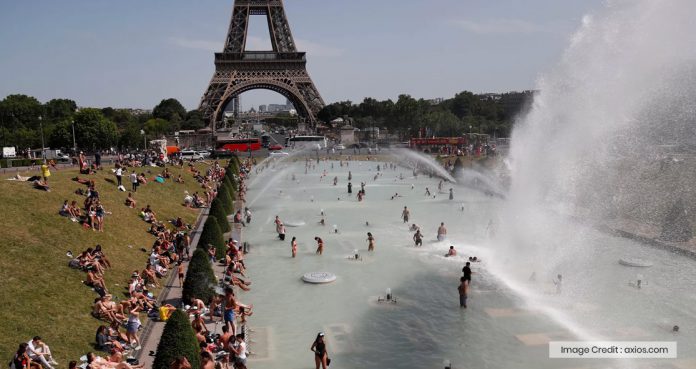As Western Europe braces for the heatwave this summer, the French city of Bordeaux has hit its highest temperature, breaking previous records.
Meteo France, on Tuesday, registered a temperature of 41.2 C (106.1 F) in the southwestern city, breaking its previous record of 40.7 C in 2003.
Weather forecasters predict record-breaking temperatures across Europe this week, including Germany, Belgium, and the Netherlands.
Claire Nullis of the World Meteorological Organization said, “The heatwaves bore the hallmark of climate change.”
“As we saw in June they are becoming more frequent, they’re starting earlier and they’re becoming more intense,” Nullis added. “It’s not a problem that’s going to go away.”
Forecasters have issued an orange alert in France, which is the second-highest level of warning.
Meteo France said the temperatures in Paris could hit new highs on Thursday, breaking the previous record of 40.4 C in 1947.
The temperature is also expected to increase up to 40 C in some countries.
Meanwhile, forecasters in Belgium have issued a code red weather warning for the whole country. Spain declared a red alert. The Netherlands’ government activated its “National Heat Plan.”
In the United Kingdom, temperatures are expected to go above 35 C, recording the highest ever.
Preparations are being made by limiting the water heating to keep the nuclear reactors cool. EDF, the French energy firm, said it would be shutting down two reactors at the Golftech nuclear power plant.
Extra water points and ice foot baths are being made available to cyclists taking part in the Tour de France to avoid heatstroke and dehydration.
Experts said that blaming global warming is complicated. They said these will happen more often due to climatic changes and extreme weather events, such as heatwaves, occur naturally.
According to the late 19th century records, “The average temperature of the Earth’s surface has increased by about one degree since industrialization.” Some researchers are concerned that rapid warming associated with the use of fossil fuels has serious implications for the stability of the climate.






















